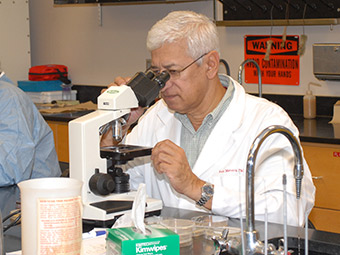Allo-preening is linked to vocal signature development in a wild parrot
Document Type
Article
Publication Date
11-2021
Abstract
Allo-grooming networks in primate social groups are thought to have favored the evolution of vocal recognition systems, including vocal imitation in humans, as a more effective means of maintaining social bonds in large groups. Select avian taxa converged on vocal learning, but it is not clear what role analogues of allo-grooming might have played. Unlike allo-grooming in most primates, allo-preening in birds is usually limited to pair-bonds. One exception to this is during nestling development when siblings preen each other, but it is unknown how allo-preening influences vocal learning. We addressed this question in wild Green-rumped Parrotlets (Forpus passerinus) in Venezuela. Nestlings learn signature contact calls from adult templates. Large broods, age hierarchies and protracted development in this species create the potential for complex allo-preening networks and a unique opportunity to test how early sociality makes the development of vocal learning labile. From audio-video recordings inside nest cavities and a balanced design of different brood sizes, we quantified allo-preening interactions between marked nestlings, to compare to signature contact calls. Controlling for brood size and age hierarchy, the propensity to preen a larger number of individuals (i.e., out-strength) correlated positively with the age at first contact call. Allo-preening and acoustic similarity matrices did not reveal clear correlations within broods, instead larger broods produced greater contact call diversity. Results indicate that allo-preening elongates the period during which contact calls develop, which might allow individuals time to form a unique signature under the computationally challenging social conditions inherent to large groups.
Recommended Citation
Caleb M M Arellano, Nurialby Viloria Canelón, Soraya Delgado, Karl S Berg, Allo-preening is linked to vocal signature development in a wild parrot, Behavioral Ecology, Volume 33, Issue 1, January/February 2022, Pages 202–212, https://doi.org/10.1093/beheco/arab126
Publication Title
Behavioral Ecology
DOI
10.1093/beheco/arab126



Comments
Copyright © 2021, Oxford University Press